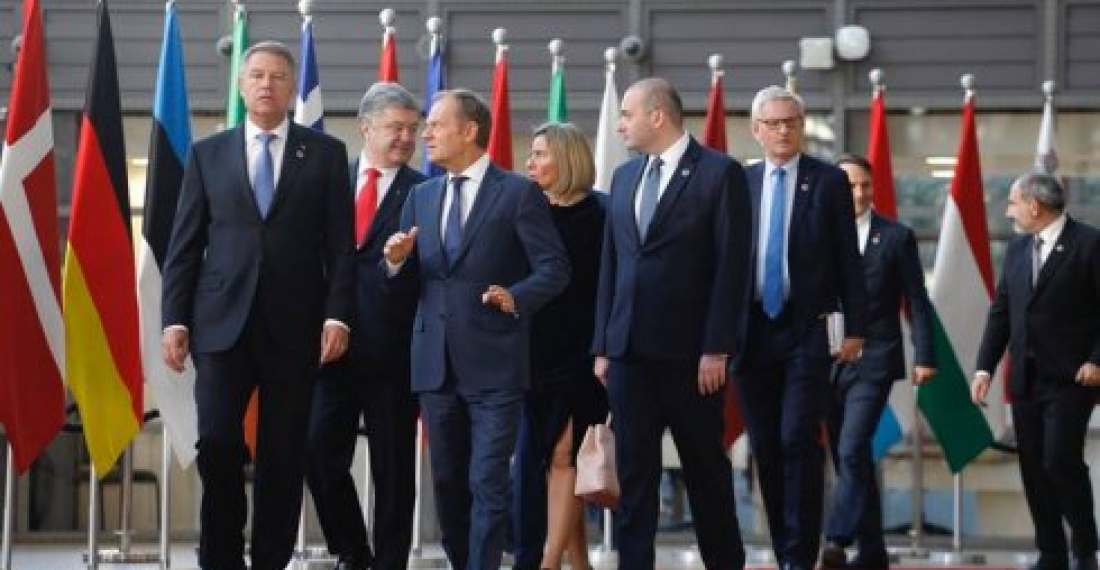"There is more Armenia, Azerbaijan, Belarus, Georgia, Moldova and Ukraine in the EU, and - I believe - there is more EU in all of your countries than ever before. We are not only neighbours - we are members of the same European family." This was stated by European Council president Donald Tusk in Brussels on 13 May whilst welcoming the leaders of the Eastern Partnership countries for a celebratory event marking the partnership's 10th anniversary.
"The Eastern Partnership has had its successes, its challenges, and also moments of high drama, as in November 2013, during the summit in Vilnius, where President Yanukovych rejected Ukraine's Association Agreement, which he later bitterly regretted.Today, after ten years, we can reflect on our achievements. Three of the six Eastern Partnership countries have Association Agreements that include deep and comprehensive trade areas. They also have visa-free arrangements with the EU. Billions of euros have been spent on border management, connectivity, environment and energy efficiency, support for business, legal advice, and education. Young people from Partnership countries participate in Erasmus. Much more still needs to be done, but there is no doubt that our partner countries have come closer to the EU, more than our other neighbours."
"As we celebrate our tenth anniversary, we are making a strong commitment to deepening our ties and cooperation. What kind of Eastern Partnership we will celebrate ten years from now depends on what we do, starting today. And I have trust in our common determination and imagination. So much has changed since we started our work bur not our friendship and determination", president Tusk added.
source: commonspace.eu
Photo: the leaders of the six Eastern Partnership countries and EU leaders arriving for the start of celebrations marking the 10th anniversary of the Eastern Partnership held in Brussels on 13 May 2019 (picture courtesy of the press service of the European Union).






